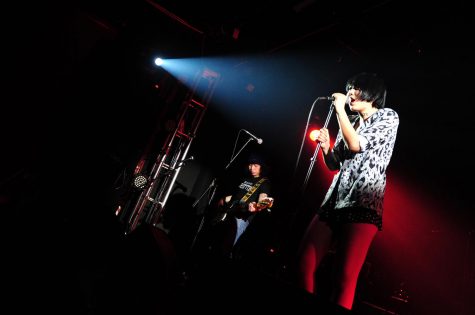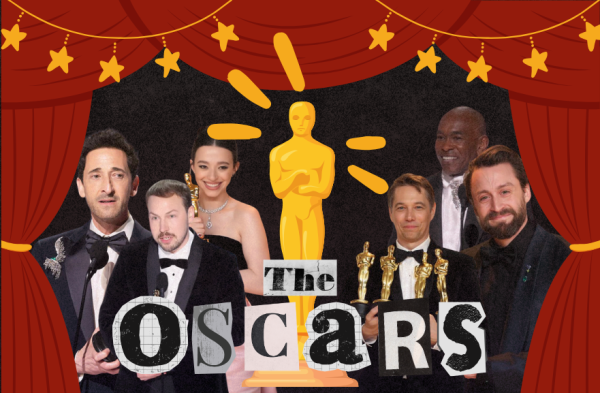Music Industry Sexism and the Role of MMET

It is no secret that sexism is extremely prevalent in music scenes and industries all around the world. A conversation with any local Riot Grrl or female musician will confirm this truth. Whether it manifests itself as condescending attitudes from male peers, a perceived inability to handle themselves, or in more sinister forms such as sexual harassment and even abuse, sexism permeates all parts of the music industry. A study done by the Musicians’ Union, which represents more than 31,000 musicians, confirms that 48% of their members faced workplace harassment, and of them, 85% did not report the incident out of fear that they would receive professional or social backlash. Only one in five (19%) claimed that the contract they worked under mentioned sexual harassment. Sexism is, unfortunately, a very real and very prevalent reality in the music industry.
So, it makes sense that this issue will be seen in our MMET program as well. MMET (Media, Music, Entertainment, Technology) is a microcosm of the music industry. Its purpose is to prepare kids for a career in music and to teach them the ins and outs of the industry. One part of the industry that students are not formally prepared for, however, is its prominent misogyny. It is a taboo topic, and women who dare use the word may be uncomfortably ignored at best, ridiculed at worst.
Music culture, as described in a critical essay by Meggan M. Jordan, is built by men, for men. The image of a Rockstar is one heavily influenced by ideas of traditional masculinity. Suave, carefree, wild, handsome; these are all words that come to mind when picturing an Archetypal Rockstar. Any deviation from this image, predominantly through femininity, is looked down upon. This implicit bias ultimately affects group dynamics, inter-student relationships, and student authority within the program.
Sally, whose identity will remain anonymous, was a female instrumentalist in MMET whose personal experiences highlight the culture of toxic masculinity and sexism that permeate the music world. One specific instance she had was during dress rehearsal (which for those who don’t know is rehearsal that takes place on the actual stage that MMET will be playing on). All names that are referenced by Sally will be changed for the sake of anonymity.
“I was onstage with [Jack],” she began. “I was messing with the effects on my guitar and [another boy] walked up to us, like, in front of the stage, and looked at [Jack]. Without even looking at me, I don’t think our eyes ever met once, he basically asked [him], ‘is she ready? Is her guitar hooked up? Are her pedals right, like is she good?’ Didn’t even look at me, didn’t even acknowledge my presence, and was essentially speaking as if I was not there. It was so, like, demoralizing. It was just such an awful experience,” she said.
This paternalistic attitude men tend to carry with them in the music industry is not uncommon at all. Talking over, ignoring, speaking for, and babysitting fully capable female musicians is a tiresome yet commonplace occurrence in group dynamics.
“In general I think a lot of the common, um, verbiage around female instrumentalists is that essentially we don’t know what we’re doing. And I think that is true for the rest of the music industry as well,” Sally said. “First and foremost, [MMET] is a class where you essentially learn how to function in the music industry, and I don’t think I was fully able to do that to my full capacity because instead of being taught how to do things, I was kind of scoffed at for not knowing how to do it,” she added.
Paternalism in the music industry comes from the concept mentioned earlier: a perceived inferiority of all that is feminine due to the inherent masculinity apparent in most rock scenes. In order to receive respect from male counterparts, people of all genders must oftentimes sacrifice their femininity to paint the picture of a carefree, logical person. However, for all musicians who identify as women, this perception is not so easy to shake off. Sally essentially summed it up best by stating, “I think the best way to put it into words is that I was never an instrumentalist, I was never a guitarist. I was a female instrumentalist. I was a female guitarist.”

However, it would be false to claim that the teachers in MMET do not care about sexism, or that they do not care to stop it. We spoke to Danielle Collins, one of the teachers in the program and a female drummer. She herself has experienced sexism among her male peers. “There is definitely sexism in that world,” she said in reference to being a drummer. “I was the only girl in all the groups that I did in my whole life,” she continued.
“I’ve been in a gig where I know I’m getting paid less than everyone else, like I see it happen” she said. She also told us about female exclusion, saying, “Its pretty typical for females not to get invited to [post event networking]. Like it’s mostly guys going.”
When asked about sexism in the program, she affirmed that she sees it to a certain extent as well. “I think there is a level of it. I’m not gonna say no way,” she said. But, she also asserted that there is a culture of openness in the program among the student body. And, she has been no stranger to shutting down sexism where she has seen it. “You know, when I hear stuff like that, I pull a kid aside,” she said.
However, the key phrase here is “when I hear it.” Sexism is not always as blatant as misogynistic humor or remarks about gender. It is not always easy to spot. Most often, it shows up as a subconscious disregard of female opinions or ideas because, as was mentioned earlier, music culture was created by men for men; and therefore, “true musicianship” is something that is reserved for men. Women have to work much harder than men for recognition as capable musicians, and that is difficult to see. Collins elaborated on the issues teachers have with detecting sexism. “It’s a thing that we don’t even notice that’s happening unless someone brings it up,” she said.
This type of hidden sexism is the one that women have to bear the burden of most often; they often must work harder to have their opinion heard and valued in musical spaces. “Whenever I see girls complain to about how they’re being treated, or just when they have any issues really, it’s not taken as seriously as it is with a lot of boys,” Sally said. Again, this subject is pretty taboo. Thinking about sexism makes a lot of men uncomfortable, which is normal. But, it becomes problematic when people refuse to confront that discomfort because that leads to ignoring women when they talk about their experiences. This, unfortunately, is the route that boys in MMET have taken thus far in terms of confronting this issue. The Archetypal Rockstar doesn’t have time to worry about social issues like sexism! He’s too busy being charming and carefree!
Martin Luther King Jr. has spoken of people “who prefer a negative peace which is the absence of tension to a positive peace which is the presence of justice.” This is a common attitude toward social justice. Humans naturally seek to avoid discomfort, and avoiding talking about issues like this is the way many people choose to deal with it. However, MMET is in a specific place of power in which they are obligated to talk about this issue. It exists in a specifically high amount in the music industry, and as a program that works to create professional musicians, it is an issue that should be addressed. Not only that, but by not addressing it they are letting it live and thrive within their own program, our program.
Sally said, “I think it’s important, to a certain extent, to put girls on a pedestal and talk about misogyny in the music industry. And therefore, because you know that it exists, push your female instrumentalists forward because you know that they’re gonna have a hard time out there in the real world. And I did not hear one whisper regarding misogyny in the music industry my entire [time] in MMET.”
“If I had decided to, professionally, go into the music industry, I would have faced sexism everyday of my life. And I think MMET did a poor job, in fact, they did no job at addressing it. Not one thing explaining, perhaps, how to face that problem in the real world. And it’s a real disservice because, you know, it’s such a big part of the world,” she stated.
Collins agreed here as well. “I think there is more that can be done, I’ll be honest with you…I think that talking about it, like bringing up the elephant in the room, and making sure it’s addressed is really important,” she said.
Really, it appears that teachers and students are mostly in agreement that something more should be done about sexism. It is just a matter of putting words into action.
But, we have been focusing on negatives. To speak truthfully, the future of the music industry for women is looking brighter by the day. Women’s voices are only growing louder, and they are refusing to be silenced. Burger Records, a notorious hotspot for sexual abuse and predatory behavior, recently closed after being exposed by the women they hurt. The MeToo movement has reached the music industry, with indie musicians being able to speak about their experiences with sexism without fear. We are even seeing a revival of Riot Grrrl, this time around being much more intersectional and inclusive than the 90’s scene that was marked by racism and transphobia. A recent study done by Fender found that half of all beginner guitarists in the UK are women and girls. MMET’s lack of official opinion on the subject is not a grim look into music’s future. If anything, it is beginning to look like an antiquated look into music’s past, one where sexism was tolerated.
Earlier, the Archetypal Rockstar was mentioned. Much to the benefit of the music world, he is dying. He is slowly being replaced by an intelligent, sensitive, nerdy, teenage rebel who could be anyone. Music has always been an outlet for the disenfranchised. And in this crazy world where nothing seems to make sense, that community is growing. Punk, indie, and all sorts of alternative music are coming back full-force, and this time, it is becoming an increasingly safer place for marginalized peoples to express themselves freely. Even the amount of female musicians joining MMET seems to be growing by the year (which is fantastic because Collins brought up the unfortunate lack of female instrumentalists in MMET, specifically drummers and bassists).
Now, that does not mean sexism does not exist anymore. It absolutely does. But it is being fought on a wider scale than ever seen before within the music industry. MMET absolutely needs to step up and join the future of music instead of remaining neutral on the subject. MMET needs to protect and celebrate their female members. MMET needs to join the fight against sexism. MMET, quite frankly, just needs to talk about it.
Your donation will support the student journalists of Huntington Beach High School. Your contribution will allow us to cover our annual website hosting costs.
Thank you for supporting our program!






